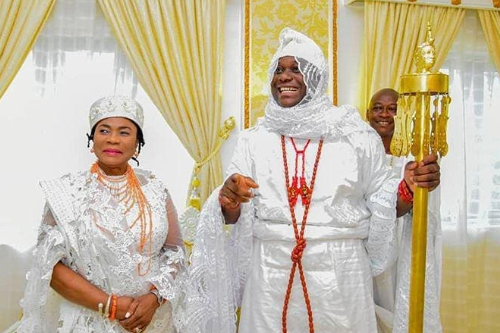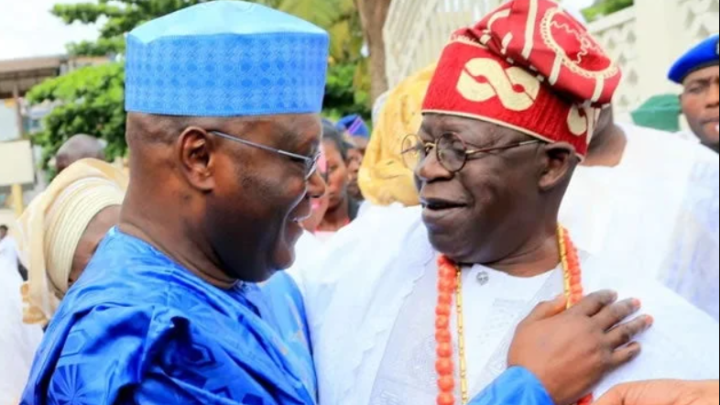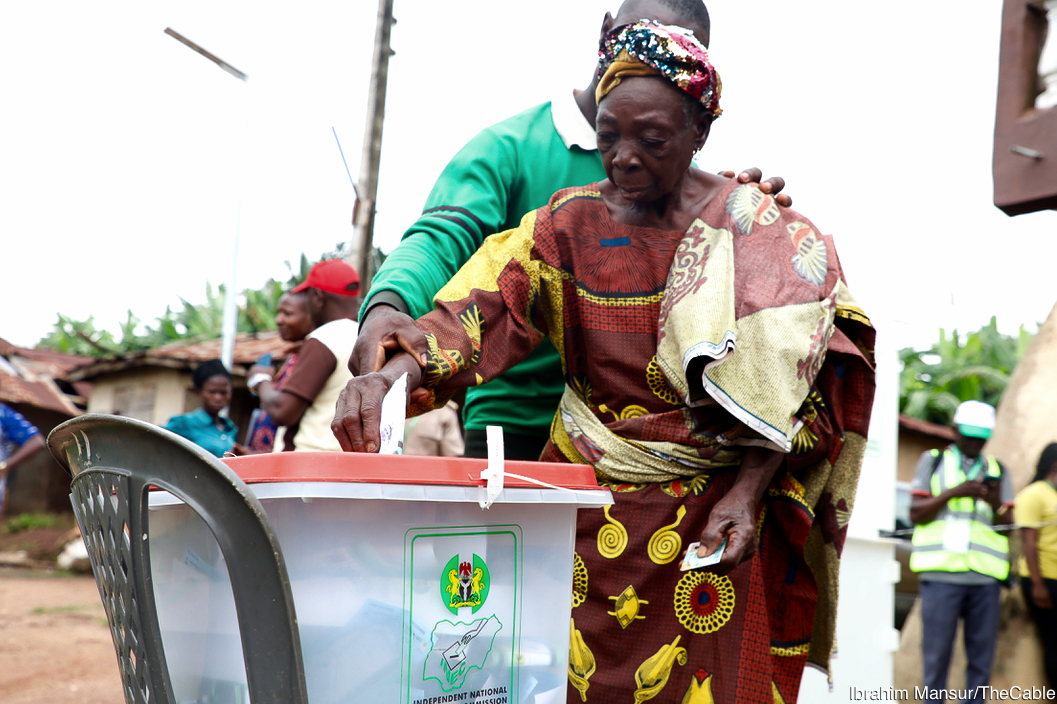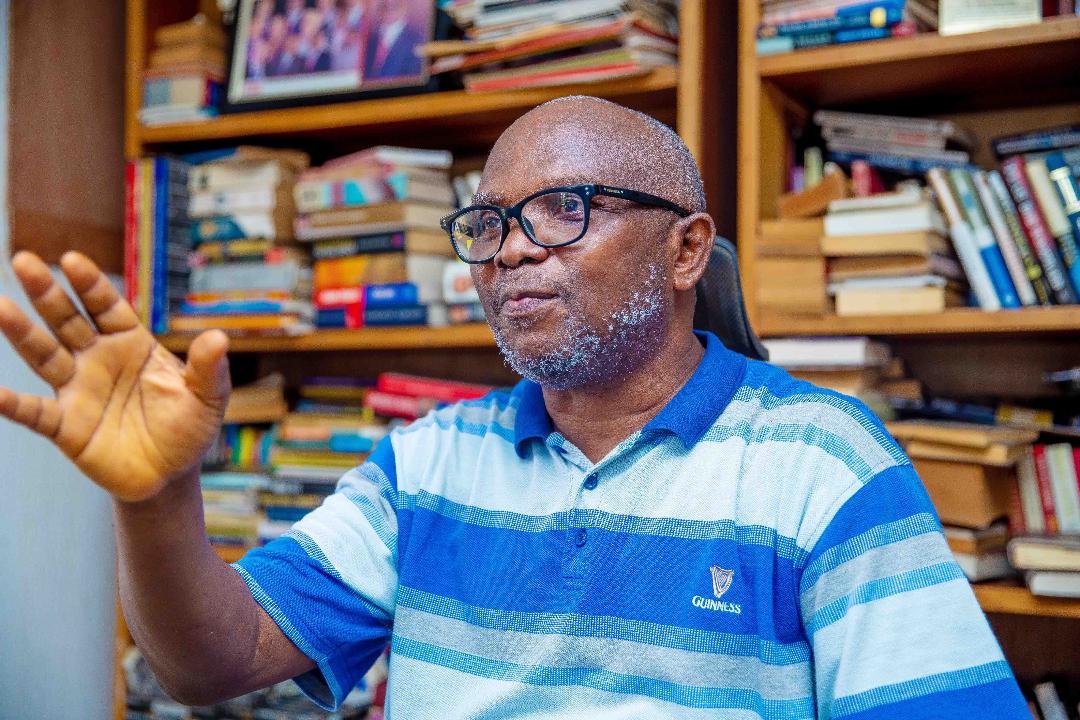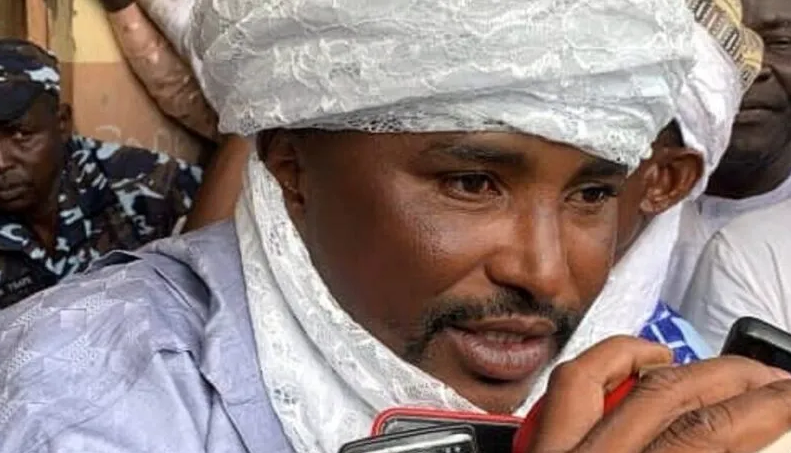The easiest thing to think about Her Royal Majesty, Erelu Dr Abiola Dosunmu, is to believe that she has been around like forever. That is because her name recognition is phenomenal not just on account of the pride of place she occupies in high society but especially because of the span of her achievements across different walks of human endeavour. Call her a style icon, you will be right. Call her a worthy ambassador of culture and tradition, you would have captured her essence. Call her an entrepreneur par excellence, you equally would have struck at the heart of her image as the definition of vision and hard work. In every way, she affirms the perception that there is no one cap that fits all. This is the reason it is extremely difficult to find one word that best describes her: every good adjective fits perfectly.
However, there is a common mistake that many people make about Erelu Dosunmu. They assume that her traditional title, Erelu Kuti IV of Lagos, is one of the many fancy titles bestowed on highly regarded individuals by kings across Yorubaland. It is not. On the contrary, the title is grounded in the history of Lagos itself. The original Erelu Kuti was a queen who gave her crown to her son and whose direct descendants have been reigning for about 400 years. According to the laws of Lagos state, the Erelu Kuti is in the first-class Oba category. Erelu Abiola Dosunmu, a direct descendant of Oba Dosunmu, has been playing her role as Erelu Kuti IV, the ceremonial queen mother. The title, which is the inheritance of royal princesses of Lagos, was bestowed on her in 1980 by His Royal Majesty, Oba Adeyinka Oyekan, the late Oba of Lagos.
From an early age, the prism from which she saw the world gave a clear indication of the success she would achieve in adulthood. One of her early influences was her maternal grandmother, a high-ranking traditional chief from Owu, Abeokuta. As she told the Punch newspaper in an interview, her grandmother “was a tough, strong and independent woman who was also a big and enterprising entrepreneur,” adding, “I grew up seeing a female achiever and there were no inhibitions about being a successful woman”. In those few words, Erelu Dosunmu very well summarised her own life, which is a mix of her passion to preserve culture and tradition, her strength of character and her amazing determination to excel in enterprise management. Little wonder she prides herself as a strong, successful woman.
Whereas many have tended to see her more in terms of her influence and affluence as a style icon, it is evident that some of her greatest impacts could be felt in her unapologetic campaign to preserve culture and tradition. She assumed her traditional role at a time when much of the elite class of professionals thumped their noses at the traditional institution. From the get-go, she decided she would use that platform to make an important difference in society. For that reason, she preferred to be seen as a traditionalist rather than as a socialite.
Advertisement
To her credit, she founded the pan-Nigeria body of Traditional Rulers and Eminent Persons for Good Governance, with membership from the six geo-political zones of the country. To date, the body has made significant contributions to dousing socio-political and cultural tension across Nigeria. As an individual, she was able to broker peace between two eminent but warring traditional rulers in Yorubaland, the late Alaafin of Oyo, Oba Lamidi Adeyemi, and the late Ooni of Ife, Oba Okunade Sijuwade, though the reconciliation efforts were frustrated several times by third parties.
Much as she would have loved to be involved in the partisan political space to ensure life was more abundant for her compatriots, the demands of her role make such dreams impossible. Nonetheless, she has lent her strong voice to the advocacy of diverse programmes to promote public good, especially towards achieving gender parity, women development, women empowerment and leadership. In this role, she has also made significant marks, including her membership in the first Earth Summit held in Rio de Janeiro, Brazil from June 3 – 14, 1992, and her chairmanship of the Lagos state tree planting and beautification committee which initiated several environmental projects such as the beautification of the inner and outer Lagos Marina.
As an entrepreneur, Erelu Dosunmu walked the path paved by her maternal grandmother who stirred her love for traditional aso-oke by bequeathing some beautiful fabrics to her. She further revolutionised and popularised the fabrics by making them available in many colours of the rainbow. This generated so much excitement because they were also used to make eye-popping grand ball dresses. The uniqueness of the materials and Erelu Dosunmu’s strong affiliation with the Commonwealth Institute then headed by Chief Emeka Anyaoku also led to a lot of visibility in British high society, which eventually created the multimillion-dollar aso oke global business. The success of the enterprise was underscored by her trailblazing step of setting up shop on the high-profile Bond Street in London, England where one of her proteges is the now world-famous couturier, Adebayo Jones, who interned at the shop.
Advertisement
She has won several awards and recognitions in appreciation of her personal contribution to the growth of society and her philanthropic work through the Erelu Abiola Foundation (ERAF). These include the Nigerian Institute of International Affairs Award; the National Honour of the Royal Kingdom of Belgium; the Honorary Doctor of Culture awarded by Igbinedion University, Okada and the Pan- African Exemplary Leadership Award for her immense contribution to nation building.
These accomplishments notwithstanding, two things rile Erelu Dosunmu: the proliferation of kings, and, by extension, the diminishing role and influence of the traditional institution. She blames both on the increasing politicisation of the institution, which has led to the loss of respect for kings. In her view, for traditional rulers to regain respect, they must be ready to ‘forfeit their ambitions for the progress of their people’. The resultant respect from the people and the political leadership, she believes, would engender a ‘beautiful collaboration’ between government and traditional rulers.
This thinking must have informed her acceptance of the latest chieftaincy title of Yeye Oodua of the Source conferred on her by the Arole Oodua, His Imperial Majesty, Ooni Babatunde Adeyeye Enitan Ogunwusi, Ojaja II. By some happy coincidence, the honour comes just days ahead of her 75th birthday on Friday, July 29, 2022. No gift of clairvoyance is required to predict that the celebration of that landmark birthday will literally shut down Nigeria as it will draw the crème de la crème of society, typical of shows put up by Erelu Dosunmu.
One thing is certain; beyond the personal honour donned on Erelu Abiola Dosunmu, the House of Oduduwa has, by its pick of an honoree, shown its determination to assert the relevance of traditional institutions in society. She is a worthy ambassador historically well-positioned to champion a well-coordinated cultural revival in Yorubaland and Nigeria in general. As the juju maestro, King Sunny Ade, sang in praise of Erelu Dr Abiola Dosunmu, “bibi ire ko se f’owo ra”. Indeed, money can’t buy a good pedigree. You either are born into it or you earn it. Erelu Kuti IV of Lagos evidently got it both ways.
Advertisement
Adekanmbi, author of The Will To Win: The Story of Biodun Shobanjo, contributed this piece from Lagos
Views expressed by contributors are strictly personal and not of TheCable.
Add a comment

